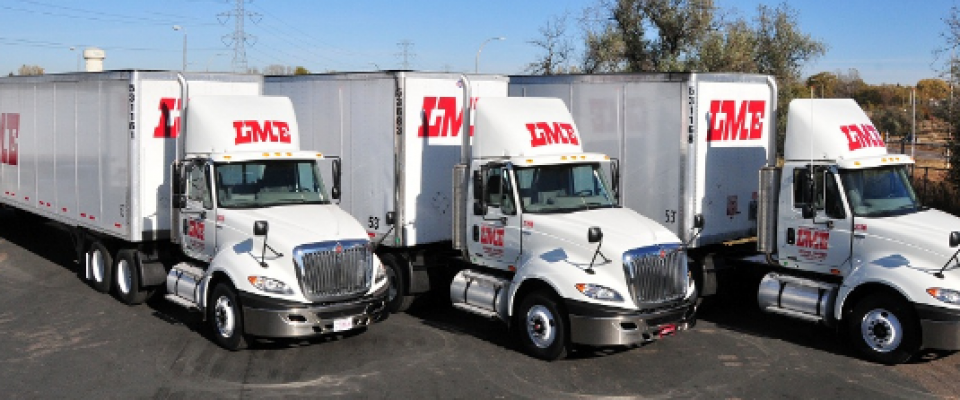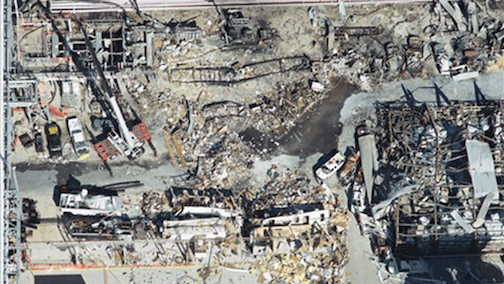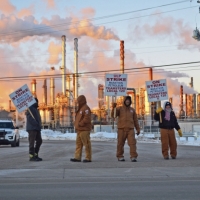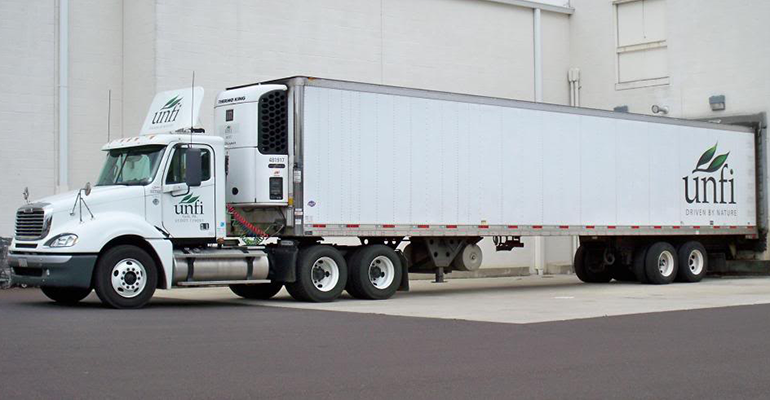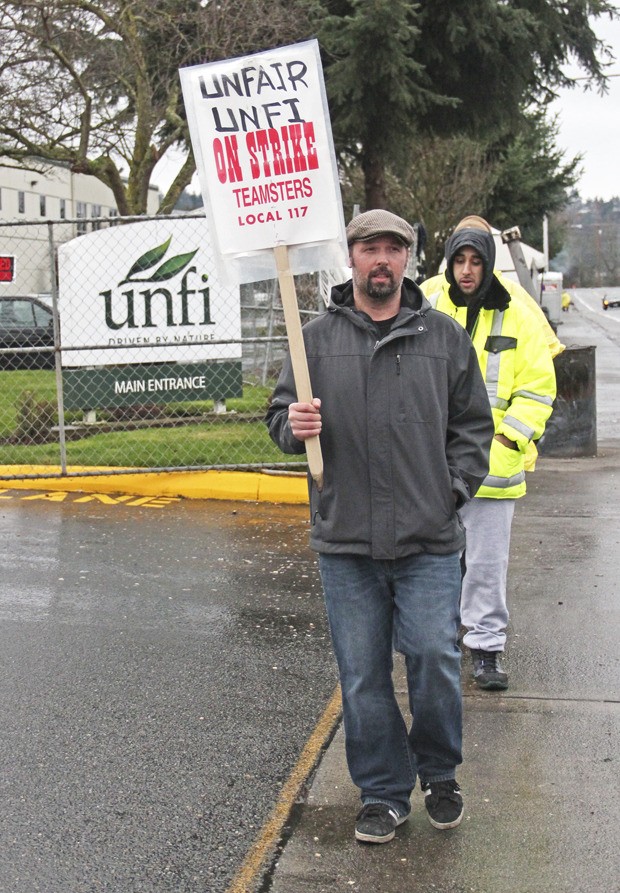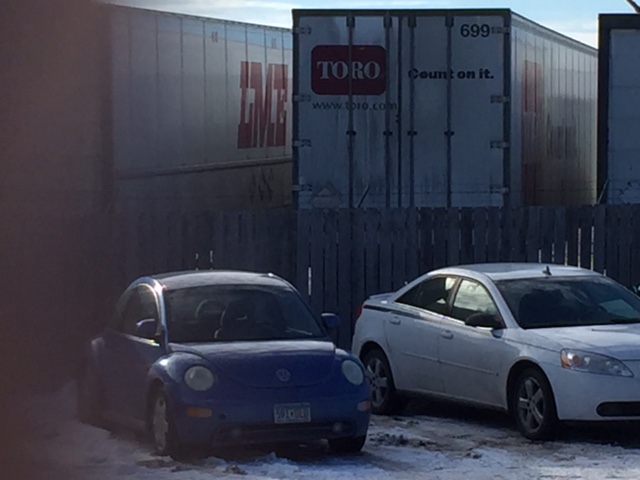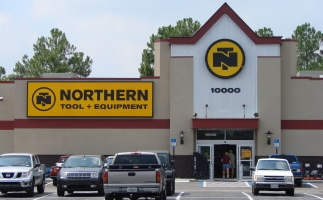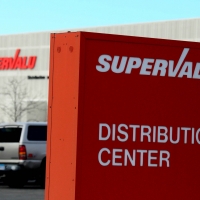-
Is Marathon Seeking a License to Kill in St. Paul Park?
What is really behind the lockout of nearly 200 Marathon refinery employees in St. Paul Park? Marathon appears to be seeking a backdoor to avoid accountability for industrial accidents, pollution and damage to the environment.
One of the main points of dispute in the lockout centers around Marathon’s ability to sub-contract jobs previously done by permanent well-trained employees. Generally, disputes over sub-contracting break down simply as job protection vs. money. In other words, the Union wants to keep their jobs and the company wants to save money by hiring cheaper less skilled labor. In St. Paul Park, however, Marathon’s motivation may be far more sinister.
Refinery jobs are incredibly dangerous. Something Marathon and its employees in St. Paul Park know all to well. In 2007, Marathon employee Nick Gunter was burned alive in a tank after an explosion occurred. He was 29 when he died. Incidents like what happened to Nick are not unique to St. Paul Park or rare in the refining industry.
According to the 2015 EHS article “A Deadly Industry”, at least 64 people died at refineries between 2005-2015. Its at least 64 because tracking incidents involving sub-contractors is difficult to impossible. According to EHS: “Oil refiners have increasingly contracted out some of their most dangerous jobs to companies that are classified elsewhere.”
Rather than addressing issues to make their industry safer, Marathon seems to be re-structuring their workforce in order to give themselves cover in the form of plausible deniability and a scapegoat (the sub-contracting company) when accidents happen. They can continue operating dangerously with less accountability when there is an incident.
In March of last year an employee of sub-contractor Turner Industries died in an industrial accident at the CITGO Charles Lake refinery in Vinton, LA. The focus of the coverage around the accident focused far more on Turner Industries than it did on the parent refinery company. Liability and OSHA oversight for the incident would also presumably fall primarily on Turner and not the parent company that hired Turner and runs the refinery.
According to several sources this “pull the curtain” game is already being played by Marathon in St. Paul Park. For over a year, the company appears to have been systematically replacing skilled contractors with sub-contractors that have lower standards. Many of the previous contractors maintained certified apprenticeship programs to ensure employees were highly qualified and safe on the job. Very few of the new sub-contractors maintain those programs.
For a case study on why Marathon is doing this, look no further than STARCON International. Multiple sources state that since Marathon brought STARCON into SPP, its safety record has been abysmal. To keep the veneer of safety going, Marathon reportedly cancelled STARCON’s contract and awarded it to a new cut-rate sub-contracting company. This new company appears to be hiring many of the same employees that previously worked under STARCON and its abysmal record. The new sub-contractor… (You guessed it) Turner Industries.
You see, by playing this sub-contracting game, Marathon will be able to “keep their hands clean” from some liability and accountability using the sub-contractor as a buffer. They will say STARCON was the bad actor, not Marathon. They will claim Marathon fired STARCON because Marathon is committed to safety. In reality, they are just changing the costumes on a rotating group of clown outfits that all appear to hire the same unskilled clowns.
Worse yet, the risk from these places isn’t just to the workers inside the gates. In October of 2020, the Oxford University Press published a study that found a statistically significant correlation between several types of cancer in communities and the communities’ proximity to an oil refinery. These accidents, these spills, these explosions don’t just harm the workers. They harm kids and families in the surrounding communities.
Marathon’s continuance of sub-contracting policies that result in accidents is abhorrent. For any other citizen, having a reckless disregard for human life that results in death is called Manslaughter. Our question: When the next accident happens, will Marathon be held to the same standard as the rest of us?
Here in MN, at least one legislator is planning to do something about this. State Sen. Karla Bigham, whose district includes the Marathon refinery, is proposing legislation to address the issue. Her proposal would require that sub-contractors at safety sensitive sites maintain a certified apprentice program to ensure a highly skilled workforce at these incredibly dangerous sites.
While this legislation won’t entirely fix the problem of bad corporate actors running refineries, it’s a start. And it needs to pass.
Companies like Marathon cannot be allowed to operate both unsafely and without accountability. No one should have a license to kill in our state.
(Pictured below credit EHS: Texas City Refinery Disaster)
Oxford Study EHS Article Turner Industries News Report
-
Why the Marathon Refinery Strike Should Matter To Every Minnesotan
Two Words: Hydrofluoric Acid
It’s the most dangerous chemical you may never have heard of and its at the center of a massive strike at the Marathon Oil refinery in St. Paul Park MN: Hydrofluoric Acid.
Why does Hydrofluoric Acid matter? It’s highly toxic, it vaporizes in the air, it has the potential to be lethal miles away and its right in our backyard at the St. Paul Park refinery.
Hydrofluoric Acid has been banned in California and there are movements across the country to ban its use in refineries. A formal petition was filed with the EPA in 2019 to ban the use of the substance nationwide. According to the petition: “Such regulations are necessary to ensure that the highly toxic substance is no longer used in oil refineries, given its inherently dangerous nature, the occurrence of “near miss” accidents, the availability of safer alternatives…”
“The fluoride ion can enter the body, potentially interfering with calcium metabolism, which can cause death by cardiac arrest… When a person is exposed, pain and tissue damage does not manifest immediately and can be delayed for several hours… even exposure at a lethal level can often go unnoticed —as little as 25 square inches of exposure can be fatal.” The potential for exposure to go unnoticed can exacerbate by delaying necessary medical intervention.
The oil companies know this chemical is dangerous. A industry sponsored study conducted in 1986 concluded that the vaporized chemical would have be lethal to humans even miles away from the source.
The St. Paul Park refinery is one of the roughly 33% of refineries operating in the US currently using Hydrofluoric Acid in the refining process. Currently, the deadly chemical is being monitored and handled by workers who may not be familiar with the facility, may not be well trained, and may not be capable of identifying issues before they become catastrophic.
Even in the hands of trained professionals there have been several near miss incidents with the chemical in recent years. There were incidents at refineries in at least Torrence California, Phillidelphia PA, and of course Superior WI. The latter of which necessitated an evacuation of the surrounding area in 2018 after an explosion at the refinery.
According to workers on the picket line, one of the replacements working in the unit that handles the acid said he was a High School Shop Teacher making some extra money working during the strike. Without offending High School Teachers, I’d rather leave the handling of a chemical this deadly to the professionals.
Marathon’s actions to this point appear to completely disregard the risks posed by the chemical. According to the Union, because of the risk posed by Hydrofluoric Acid, they offered to return to work last night after further talks with Marathon were confirmed. The company reportedly denied access to the workers who are trained and familiar with the facility, trusting our safety instead to what may be a high school shop teacher.
Corporate Transparency Reporting
-
UNFI Executives In the Hot Seat Over Wasteful Spending

TACOMA WA- As UNFI (NYSE: UNFI) stock value plummets, company executives are taking heat for what some view as wasteful spending practices. Critics say executives are throwing money away on personal power struggles even as company stock value has dropped over 90% since 2015.The latest criticism stems from an employee contract dispute related to the company’s relocation of their Tacoma WA Distribution Center. Last month, in a landmark decision, an arbitrator sided with the Tacoma Employees in their dispute. The arbitrator ordered the company to allow Tacoma employees to move to the new facility with their existing pay and benefits. The good news for investors is that the damages awarded are still relatively cheap, since not all of the layoffs have been completed. The bad news, however, is that UNFI executives are defying the legally binding decision, increasing the company’s liability by roughly $1.2 Million per month (not including potentially millions in legal costs).
The decision not to abide by the award is baffling many industry insiders who said the company is extremely unlikely to prevail. “Arbitration decisions rarely get overturned. It’s like they are throwing a Hail Mary pass from their own 1-Yard line… far more likely to backfire than to help in any real way. Except in this case, its not a game, its potentially tens of millions of dollars they are gambling with,” said one expert with close knowledge of the issue.
The company’s liability compounds exponentially when you factor in the impact of this decision on an already tenuous labor situation for UNFI nationally. Workers from across the country have jumped on the hashtag #FUnfi and are calling for a nationwide UNFI work stoppage. UNFI executives shirking employment contracts will certainly not help them avoid that outcome.
UNFI’s Chief Legal Officer Jill Sutton appears to be calling the shots in this situation. She has been quoted in news outlets calling the arbitrators decision “unlawful”. Sutton’s actions raise questions: Is she spending company resources to save face after the embarrassing arbitration defeat? Are departures in her department due to dissension within her own ranks? Is CEO Steve Spinner personally involved in these decisions, or has he been kept in the dark?
This isn’t the first time UNFI leadership has come under fire for how it spends money. Last year, Yahoo Finance reported that Spinner’s compensation was nearly three times higher than the median CEO salary for companies with similar market capitalization.
Keep an eye on UNFI: my sources tell me their upcoming shareholder meeting could get interesting.
David Gilbert-Pederson, Reporting
CorporateTransparency.org -
Trouble at United Natural Foods Inc. (NYSE: UNFI)
A labor dispute with one of the nation’s largest grocery distributors is shaping to be one of the biggest in recent memory. Corporate Transparency has confirmed through multiple sources that United Natural Foods Inc (UNFI) is facing labor action in multiple states that could affect both investors and consumers at large grocery chains like Cub Foods, Whole Foods Market, Coborn’s and SuperValu.
The campaign against UNFI appears to be powered by rank and file members of the Teamsters Union pushing for action on social media. Public social media posts with the hashtag “#FUnfi” include UNFI workers in at least Washington, Minnesota, California, Illinois, Iowa, North Dakota, Indiana and Oregon. If the Union is indeed planning nationwide work stoppages, it is unclear if UNFI could find enough replacement workers to keep grocery store shelves stocked and keep the dispute from affecting its major customers.
The dispute seems to center around UNFI’s purchase of grocery distributor SuperValu last year. My sources tell me that UNFI has began either subcontracting or moving significant portions of work in some areas, affecting the livelihoods of longtime employees and potentially lowering food safety standards for many of the food products we take for granted every day. According to Wall Street investment analysts, UNFI stock value has dropped over 77% in the past year, and in an increasingly competitive market it is unclear how power struggles with their workforce will benefit their investors or their customers.
I called a senior level UNFI official to get a comment from the company regarding the impending actions. He abruptly hung up when I mentioned the workers grievances and the possibility of work stoppages. I had hoped to get answers about how the contracting out of former good paying union jobs to lower paid workers fit into their “Mission to transform the world of food,” and in particular their commitment to “do the right thing: put safety and integrity at the forefront of everything we do.”
Many questions remain unanswered: Do UNFI’s clients and customers know about the employee actions? Does UNFI have a plan to deal with work stoppages? How will UNFI guarantee that citizens around the country have access to affordable and healthy food in the event of a national work stoppages?
David Gilbert-Pederson
Reporting for CoporateTransparency.org -
Uber’s Toxic Culture Harms Investors
Uber has been in the news lately… for the wrong reasons. It seems what is a toxic corporate culture is spilling over into the public eye, affecting the bottom line, and investor money. While Uber is setting up for an IPO that, at one time, was projected to be one of the hottest initial offerings of 2017. In the past two months some experts have cooled on their projections given the company’s struggles lately and the exodus of staff escaping what appears to be a toxic corporate culture. Read more here
The root of these problems for many companies seems to be the way that they view their business. Corporations that view their business as a way to provide a benefit to society seem to be more successful and have less of these types of issues. Look no further than some of America’s most successful people (Bill Gates, Steve Jobs, Warren Buffet, Mark Zuckerberg, Oprah Winfrey etc.) to see examples of this. What the above individuals have in common is they all sought to add value to the marketplace. They focused on long term growth rather than high risk short term goals.
This “Value Added” mentality leads successful companies to invest in talent and create a culture where talent at every level of their business is valued and encouraged. Contrast that with the recent leaked video of Senior leadership at UBER berating an entry level driver for having opinions.
We have yet to see for certain exactly how much impact Uber’s culture will have on their bottom line. But one thing is for sure, in this writer’s opinion long-term vision and successful talent management is part of the recipe that investors should look for.
-
MyPillow Cuts Ties With LME/FLE
“MyPillow is proud of its Minnesota workers and supports all Minnesotans that work hard for a living.”
MyPillow announced Thursday that they are severing ties with trucking companies FLE/LME in response to customer concerns over the ongoing issue with the trucking firms. Corporatetransparency.org received the following statement from MyPillow CAO Joseph Springer:
‘MyPillow hires a third-party broker to arrange trucking and was not aware of any issues with LME/FLE until it received the press release issued by CorporateTransparancey.org on February 15, 2017.
While MyPillow is not a party to any dispute between LME/FLE and its workers, MyPillow understands that some of its customers have raised a concern regarding LME/FLE and for that reason, MyPillow has notified its trucking broker to stop using LME/FLE. MyPillow is proud of its Minnesota workers and supports all Minnesotans that work hard for a living.’
It is refreshing to see a company that takes pride in its Minnesota roots and actually do the right thing for Minnesotans. I think we all wish we had more companies like this in our state.
Graeme Allen Reporting
-
Fleet Farm, Northern Tool, and Toro Face Tough Questions
Pressure to Drop FLE/LME Grows
FOR IMMEDIATE RELEASE
Corporate Transparency has already reported on the backlash some major Minnesota companies are facing as a result of their business ties to the trucking firms FLE and LME. FLE/LME executives put 95 families out of work with no notice three days before Thanksgiving and refused to pay them for work already completed which has put them under investigation from the State of Minnesota.
After several major customers have made statements indicating they would no longer use FLE/LME many are asking why Fleet Farm, Northern Tool, and Toro have not done the same. In fact, a Toro truck was seen in FLE’s parking lot the week before Christmas (picture below).
The public backlash from this story has been swift. Corporate Transparency has already reported on the numerous news articles that have came out as a result of LME/FLE’s treatment of these 95 families. Unconfirmed reports say that LME’s revenue is down roughly 50%, indicating a significant drop in clients.
Which begs the question: Why would Fleet Farm, Northern Tool, and Toro continue using LME/FLE for their freight, there are surely other carriers that could do the work for a similar price. Corporate Transparency has reached out to several LME/FLE customers and will update this story if a response is received.
PRESS CONTACT
GRAEME ALLEN
gallen@corporatetransparency.org
612-481-2144 -
SuperValu’s Hopkins Distribution Center Authorizes Strike
Teamsters Local 120 of Blaine, Minnesota, the collective bargaining representative for the warehouse employees and drivers at SuperValu’s Hopkins, Minnesota, distribution center, has announced that its members have authorized a strike. According to its Facebook page, the members authorized the strike by a vote of 468-0. There are approximately 650 full-time warehouse employees and drivers at the Hopkins distribution center. Corporate Transparency reached out to Teamsters Local 120 President Tom Erickson, who stated that the strike authorization was “a rebuke to the Company” and “a total rejection of the Company’s concessionary proposals.” When asked what message he hoped that SuperValu would take from the vote, Erickson replied, “it’s a demonstration that our members are sticking together and acting as one, and they will continue to do so as we move forward.”
-
SuperValu’s Hopkins Distribution Center to Vote on Strike Authorization
SuperValu and Teamsters Local 120 are signatory to a collective bargaining agreement, which expires at 11:59 p.m. on May 31, 2015. Teamsters Local 120 represents all full-time and part-time warehouse and maintenance employees and drivers at SuperValu’s Hopkins distribution center, comprising about 750 employees.
Teamsters Local 120 intends to hold strike authorization votes at five time periods on Friday, May 29, 2015.
